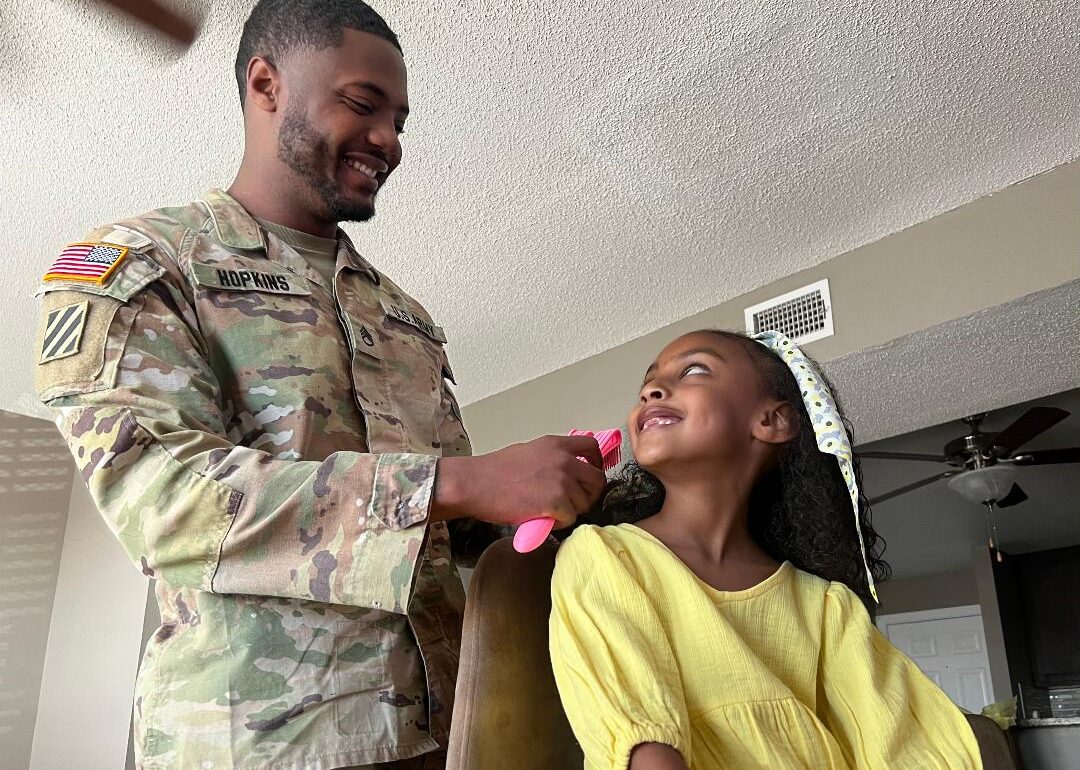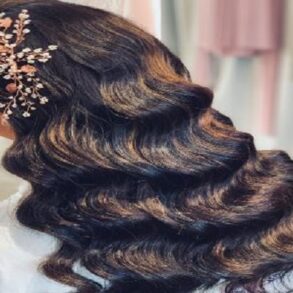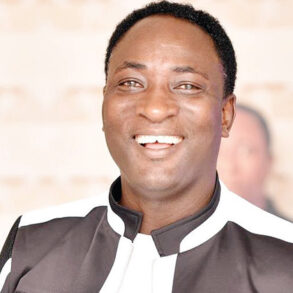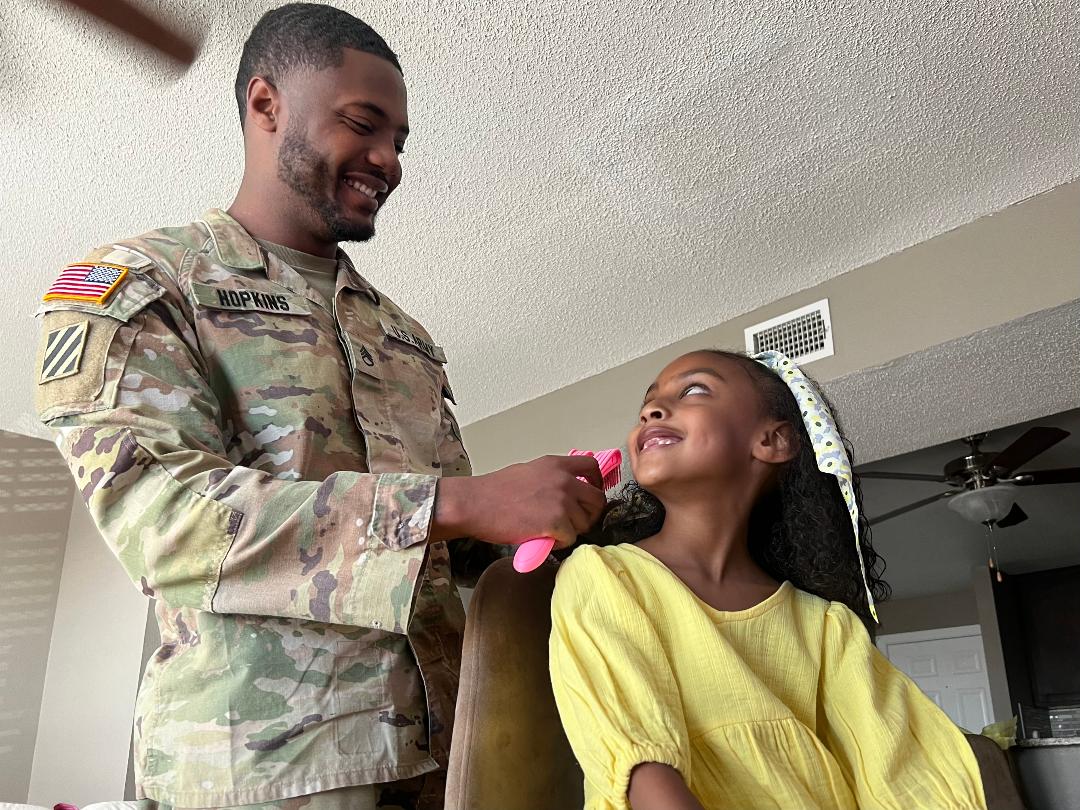
Twists, braids, barrettes, and beads—for young girls of color, these describe the hairstyles and accessories often associated with the daily practice of getting their hair done. Hair styling can be tedious and time-consuming, but for some, it can also be a bonding experience.
More often than not, the matriarch has assumed the role of the family hair stylist, but as time has passed and expectations around gender roles have shifted, dads are picking up the comb, brush, and edge control to do their daughters’ hair.
J.R. Rivera, a 38-year-old father of three, says that styling his daughter’s hair before school post-divorce has been an enriching experience for him and his daughter, helping to instill confidence in 7-year-old Azariah.
“It’s definitely a cool bonding experience where we get to talk about different things. She would sing little songs to me while I was doing her hair, and sometimes we would read a book just to take her mind off what I was doing. It just blossomed into something special so I decided to share a video online,” he says. “The video started going viral on Instagram and TikTok. And it has been something that has brought us closer together.”
With his daddy-daughter content culminating in viral fame and an ever-growing list of followers, he transitioned careers from schoolteacher to full-time influencer. In addition to the benefits of becoming a public figure through his haircare routine for Azariah, J.R. says the experience of styling his daughter’s hair before school is therapeutic for both of them. She opens up about her social interactions with him as he tries to create her look for the day. “Those mornings getting her ready for school and doing her hair allows her the opportunity to really be transparent, open, and also vulnerable,” he says. “In addition, it allows me the opportunity to listen a lot more because I am focused on getting her hair right. So, I’m more in tune with listening rather than speaking.”
Pediatric psychologist and parent coach, Ann-Louise T. Lockhart, PsyD, of A New Day Pediatric Psychology in San Antonio, says dads doing their daughter’s hair is of great benefit to the child. “When a dad makes the effort to learn how to do their daughter’s hair and it doesn’t feel like it’s an inconvenience, it does a lot for their self-esteem,” she says. “As a little girl, to have a dad who embraces your hair as well as shows you how to take care of it, that will be a self-esteem booster, especially for Black women. Ultimately, it’s nice to be told you don’t have to alter your hair and you’re beautiful just the way you show up.”
Fathers approaching the task of styling their daughter’s hair are also investing in her mental health, according to Calvin Williams, a fatherhood coordinator behind the community event Daddies Do Hair Too in Hamilton County, Ohio.
His annual community event has served as a teaching moment for fathers since 2022. He pairs dads with a professional hair stylist who gives them a live tutorial on styling their child’s natural hair.
Article continues after video.
When planning the event, Williams says that the CROWN Act served as inspiration. “One thing that quickly came to the forefront for me was this idea of fathers and daughters together, taking on natural hair discrimination and harassment,” he says. “I had just started reading about the CROWN Act. Just thinking about the young adolescent girl’s mental health and how critical hair was to them as Black women. I just wanted to bring all of that together.”
Legislation for the CROWN Act was first introduced in 2019 and has been passed in 23 states. The act prohibits hair texture and style discrimination. Although the shame that was often associated with natural hair for some time is beginning to fade, its effects linger in social settings, such as at schools and the workplace, which is why the CROWN Act has been significant.
Marquis Hopkins, a 26-year-old father of one and military professional, says doing his daughter Averi’s hair is imperative in making her confident in her hair. “I’m teaching her that people of color have it a bit harder in life and that her appearance matters since it is your first impression. Those are big priorities that will set you aside from your peers,” he shares.
Hopkins’s efforts are paying off. Averi often receives compliments from strangers that only help in developing a positive self-image. “One thing we’ve noticed is that people tell her, ‘Your hair is pretty,’ and ‘It’s so long.’ Just hearing those compliments can be a confidence booster for her.” But no one’s words of encouragement mean more than Hopkins’s own. “That’s a huge goal for me, ensuring that she wants to stay natural. So the only thing I can do right now is convince her at a young age by telling her, your natural hair is beautiful,” he says.
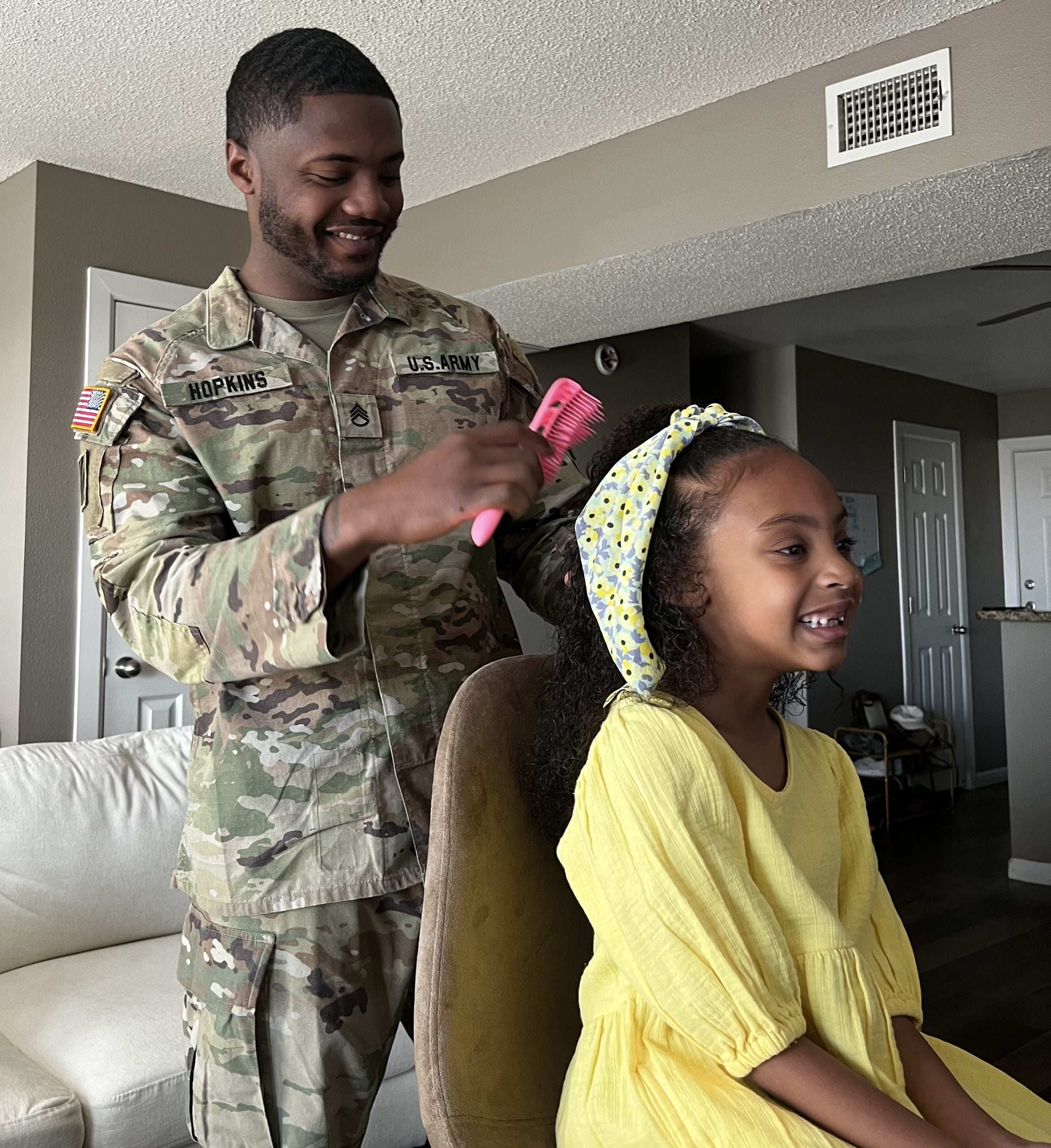



Lockhart says that dads embracing their daughter’s hair is a positive experience for both father and daughter. “It builds trust, love and companionship. It also lets the child know that they are being valued and paid attention to. This is good for dads as well. It builds a sense of confidence for them that ‘Yes, I know how to do my kid’s hair, and I can make it look super cute,” she says.
The stigmas associated with taking on specific roles often associated with one’s gender, including as it relates hair care, are beginning to fade, which adds to the pride that men like Rivera feel in wielding a comb and brush for their daughters. “There’s more representation of dads doing hair and it’s allowing dads to embrace it,” he says. “Years ago, I probably would not put this on the internet because it was not socially acceptable, it wasn’t considered manly. This movement is showing you can be the man of the house and make that bonding time with your daughter special by doing her hair.”
Lockhart reiterates, “Just being able to have someone in your hair asking your opinion, making you look super cute…all of those things really shows a daughter I am nurtured, protected, valued, seen and understood. This is a good thing for them, especially knowing that yes, my dad takes care of me,” she says. “It can have a positive impact on their mental health. It shows I am important enough that my dad prioritizes my hair over all of the other things he could be doing.”
To the dads nurturing their daughter’s hair, you are not simply making her look pretty. You are investing a form of sweat equity into her mental health, confidence, and overall self-esteem. Whatever you do, never stop adjusting your daughter’s crown.
This post was originally published on this site be sure to check out more of their content.




